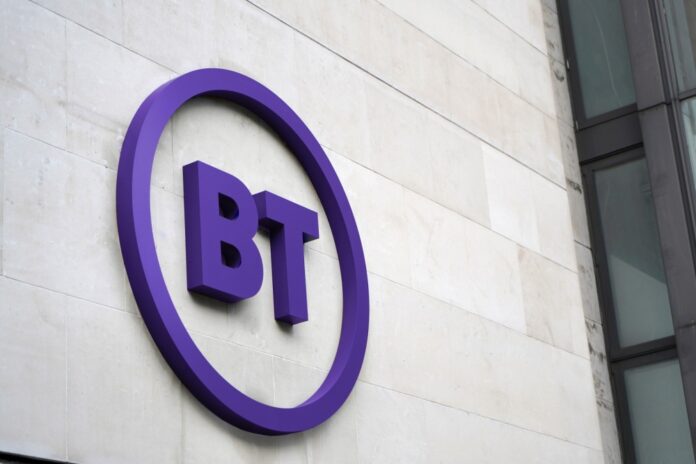Not everybody is happy…and is the writing on the wall for Philip Jansen?
As expected, wholesale access provider BT Openreach has submitted its proposed new tariffs, known as Equinox 2, for its service provider customers to regulator Ofcom. It builds on Equinox 1, and has been described as a series of tweaks rather than a radical overhaul, in that prices will be about 15% lower from April if they are approved by Ofcom, although it’s convoluted. See the table here in the ever excellent ISPreview for more details.
Also as expected, hence, the proposed changes have not been universally welcomed. BT’s plan is to provide incentives to major broadband service providers to move to Openreach’s infrastructure, like TalkTalk and Sky. The thinking is that as altnets progress, the regulator will be less stringent in curbing Openreach’s dominant market power.
Bringing down the whole industry?
After Equinox dropped the wholesale cost of a 1Gbps from £31 to £22, in October 2021, in an interview with the Sunday Times [subscription needed], BT Group’s CEO, Philip Jansen was quoted saying, “If there was a wholesaling premium problem, I would say, ‘There’s a way to undercut us here and make money.’ I don’t think there’s a way of undercutting us and making a fortune – I really don’t. In that situation, all you’re doing is bringing down the profitability of the whole industry, which then would mean poor returns for everybody else and average returns for BT.”
Virgin Media O2’s today is asking whether in fact that’s exactly what’s BT’s strategy is doing. The UK biggest alternative fibre network provider asked in a statement, “If there’s no ‘premium’ in the market then the question is, at a time when BT has increased its cost cutting target to £3 billion and will push through [consumer price index] +3.9% price increases on consumers, why is it cutting wholesale prices again?”
Virgin Media’s opinion is that looks like a move to see off greater competition by “’bringing down the profitability of the whole industry’…BT will potentially use its existing relationships and market power to squeeze others”.
BT’s questionable response?
Without doubt BT is struggling, posting poor results – its H1 profits fell by pre-tax profits fall by £18 million to £831 compared with H1 last year. It is committed to passing 25 million premises by the end of 2026 at a cost of £15 billion. So far, it has passed 9 million and is to slow its build-out pace in a bid to save money, avoiding committing capital more than six months ahead. Its CEO, Clive Selley, insists it will still hit the 2026 target.
As Lutz Schüler, CEO of Virgin Media O2, today said in a statement,“BT is facing the biggest competitive challenge in its history with billions of pounds of fibre investment pouring into the UK, creating the prospect of genuine broadband wholesale competition at scale for the first time.
“To avoid putting planned and future investment at risk, and to safeguard fair competition, it’s vital that these wholesale pricing proposals are thoroughly scrutinised to ensure Openreach is not using its market power and dominance to lock in providers and deter them from switching to other networks.
“We will be making our views clear to Ofcom and Government, who have both made repeated calls for more fibre investment and competition in the UK, and we ask that Ofcom delivers on its own strategy for a healthy broadband market as set out two years ago in its Wholesale Fixed Telecoms Market Review.”
CityFibre ups the ante
Earlier this month Fibre altnet provider CityFibre lodged a Competition Act complaint with the Competitions and Markets Authority (CMA) and Ofcom that alleges, Openreach, BT’s wholesale access arm, “undertaking an aggressive strategy to foreclose infrastructure competition in the UK fibre broadband market.”
Previously CityFibre had unsuccessfully appealed against Equinox 1 in December 2021, taking issue with Ofcom’s decision-making process – how it reached its conclusion regarding the fairness of the pricing.
Others weight in early in 2022, with BT and Sky Broadband supporting Ofcom’s decision on Equinox but smaller altnets like County Broadband, Jurassic Fibre, Swish Fibre and others taking CityFibre’s part.
CityFibre was not happy with Ofcom deciding it was right in the first place and has now resorted to the CMA.
Failed revolution?
The first time I clapped eye on Greg Mesch, CityFibre’s CEO, he was on stage at the FTTH Council Europe’s conference in March 2019 in Amsterdam, in a panel debate with BT’s newly appointed Strategy and Transformation Officer, Michael Sherman and others. It became heated and, Sherman said to Mesch, “I give you two years until you’re bankrupt. I’m not just telling you this because I’m BT – but maybe you’ve got three”. Straight from Boston Consulting Group, Sherman clearly thought the UK’s competition model was not feasible.
It remains to be seen if the fibre altnets will be a rerun of the failed great cable company revolution of the 1990s, although the consolidated cablecos eventually morphed into Liberty Global’s Virgin Media. It’s something the regulators need to consider carefully.
The four-year hitch?
And an unrelated question: after the apparently forced departure of Nick Read, Group CEO of Vodafone, last week, how long Jansen’s going to last? He became BT Group’s CEO in February 2019 when BT’s share price was then 230.00 and it’s now 117.05. Read too posted
serial poor results and Vodafone’s share price all but halved during his four-year tenure in the top job.


